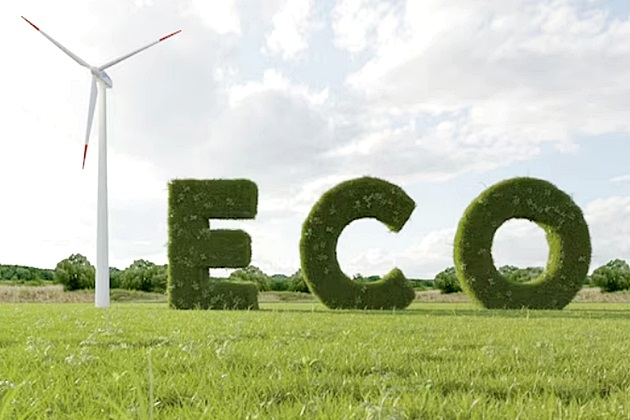907

The production and use of hydrogen from renewable sources, along with the harmonization of regulatory frameworks, will be key to decarbonizing the fertilizer sector, stakeholders emphasized at a recent event organized by Euractiv.
Innovation and Net Zero
"The European Union will be climate-neutral," declared Antoine Hoxha, the Director-General of Fertilizers Europe, to open the Euractiv Media Partnership with Fertilizers Europe.
According to Hoxha, the event aimed to present the roadmap of the European fertilizer industry toward climate neutrality, exploring two main paths for decarbonizing nitrogen-based fertilizer production, crucial for food security and strategic autonomy in Europe.
Christian Holzleitner, Head of the Low Carbon Emission Solutions Unit at DG CLIMA, discussed the EU's support for zero-emission fertilizers and how the EU is taking steps to boost the production and use of renewable hydrogen, a low-carbon alternative to natural gas, in the fertilizer sector and beyond.
He mentioned that a critical step is the upcoming auction for renewable hydrogen projects with a budget of 800 million euros, from November 23 to February 24. Several auctions are planned, and member states are expected to support hydrogen projects in their territories.
The EU is also launching a new call under the Innovation Fund, with a budget of 4 billion euros, to finance projects along the entire hydrogen value chain, including electrolyzer production and hydrogen production.
Holzleitner stated that Europe is strong in carbon capture, usage, and storage (CCUS), and the EU funded the first two ammonia projects in Austria and Norway under the Innovation Fund—ammonia is a critical component of fertilizers and has a growing market potential.
Industrial Management
Referring to the EU's work on a Commission Communication on industrial carbon management, Holzleitner talked about setting a storage target and a framework for harmful emissions in industry and agriculture (NZIA), while promoting a more sustainable use of fertilizers by supporting the development and adoption of nitrification inhibitors, which reduce nitrous oxide emissions, and providing better services and incentives for farmers, such as emissions reduction certification and carbon removal.
He said that Europe aims to create markets for high-value products, such as low-carbon and renewable fertilizers, and to mobilize consumer willingness to pay for increasingly sustainable food.
Holzleitner highlighted a new study on pricing agricultural emissions and rewarding climate actions in the agri-food value chain, providing information on how the agriculture and land use sectors can reduce greenhouse gas emissions and contribute to the EU's 2050 climate neutrality goal.
The study will inform the policy debate on the EU's 2040 climate target, proposed in the first quarter of 2024.
Decarbonization Roadmap
In his presentation of the decarbonization roadmap, Michiel Stork, Associate Director at Guidehouse, highlighted the challenges and opportunities for decarbonizing the fertilizer industry.
He emphasized the importance of having profitable and attractive business cases for investors, extending and efficiently operating new technologies, managing long lead times and uncertainty, and balancing the intermittency of electricity production from renewable sources. He also offered some recommendations for decision-makers and stakeholders to support the decarbonization process.
Stork urged decision-makers to create frameworks supporting the development of future-proof infrastructure, stimulate demand for low-carbon fertilizers, and adjust carbon boundaries to prevent unfair competition.
He advised stakeholders to focus on building necessary infrastructure and renewable energy sources and to cooperate with authorities to expedite public funding and authorization processes.
No Magic Wand
After Stork's presentation, participants shared their views on the challenges and opportunities of decarbonizing fertilizer production in the EU, crucial for food security and strategic autonomy.
They agreed that the current situation requires improvements, as the sector faces funding issues, lacks elements from the toolkit, and Europe is at a competitive disadvantage compared to other regions relying on cheaper and more polluting energy and raw materials.
They acknowledged the EU's efforts to create a green hydrogen alliance, aiming to support the production and use of renewable hydrogen as a low-carbon alternative to natural gas, a primary raw material for nitrogen-based fertilizers.
However, they also emphasized the realities and divergent needs in different countries, such as the availability of renewable energy sources, hydrogen transport and storage infrastructure, and regulatory and market conditions.
Different Standards
The panel highlighted that there is no magic wand or one-size-fits-all solution for transitioning to climate neutrality and that combining low-carbon technologies is key to promoting fertilizer sector decarbonization.
They also called for the streamlining and harmonization of regulatory frameworks to avoid a patchwork of laws creating uncertainty and complexity and to ensure fair competition conditions with third countries that do not have the same environmental standards.
They supported a shift in mindset among stakeholders and the public to embrace the opportunities and benefits of low-carbon and renewable fertilizers, such as reducing greenhouse gas emissions, improving air quality, and enhancing soil health.
The panel concluded that decarbonizing fertilizer production is a complex but achievable and rewarding goal, and the European fertilizer industry is committed to playing its role by accelerating the decarbonization of fertilizer production.




